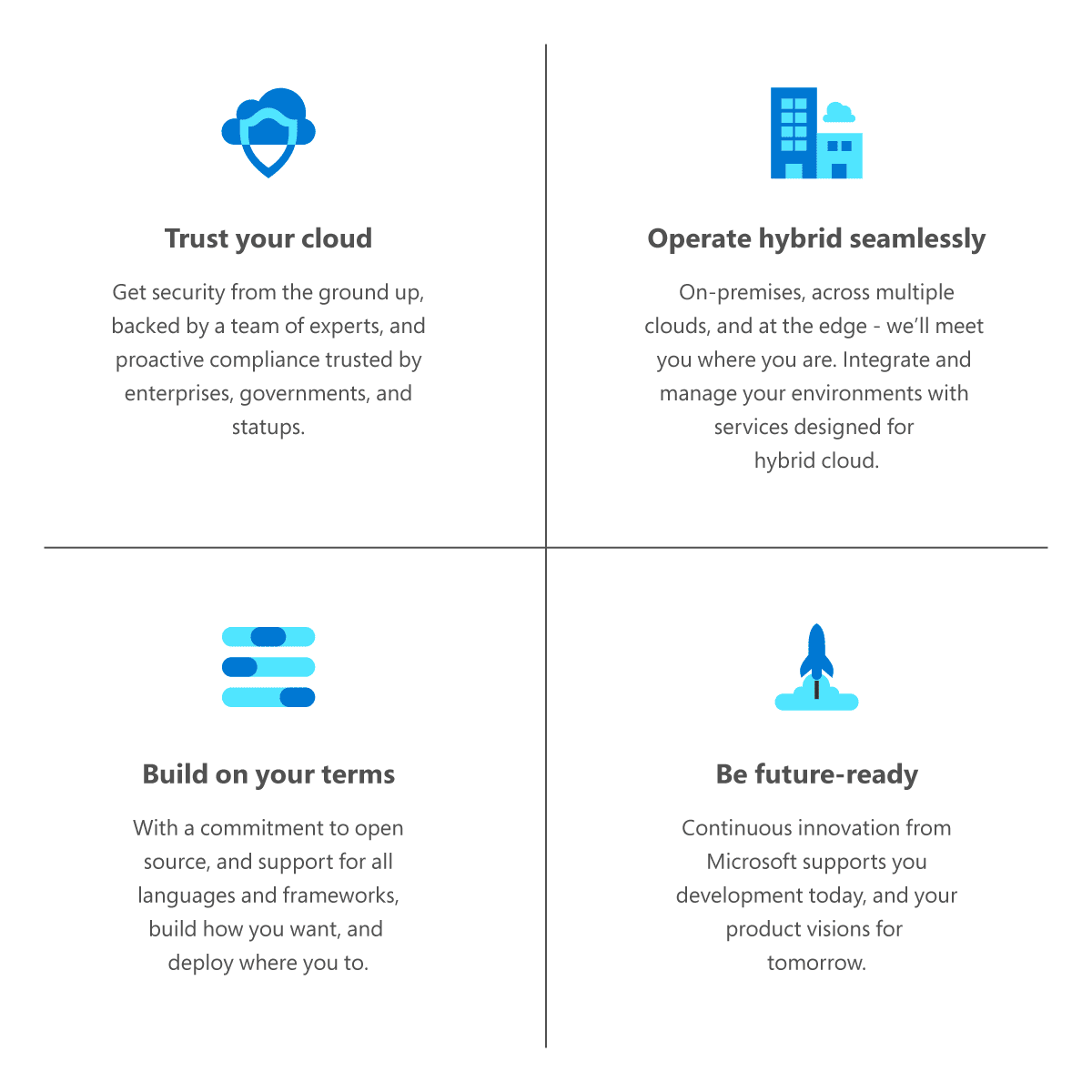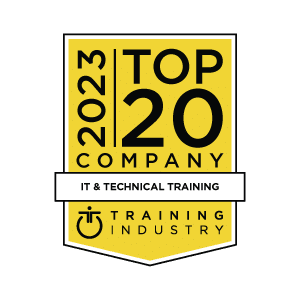Microsoft Certified: Azure Developer Associate (The Guide for 2022)
Microsoft Certified: Azure Developer Associate (The Guide for 2022)
Microsoft Certified: Azure Developer Associate
Regardless if you are working as a professional developer or you write code in your downtime, developing with Microsoft Azure puts the latest cloud technology and best-in-class developer tools at your fingertips. You can even use your preferred language to build for the cloud. How do you prove to the world that you have these modern skills?
The Microsoft Certified: Azure Developer Associate certification validates that you have what it takes to design, build, test, and maintain cloud applications and services on Azure. You earn it by passing Exam AZ-204: Developing Solutions for Microsoft Azure.
The Azure Developer Associate exam measures ones ability to accomplish the following technical tasks: develop Azure compute solutions; develop for Azure storage; implement Azure security; monitor, troubleshoot, and optimize Azure solutions; and connect to and consume Azure services and third-party services. You will be able to select the code language (C# or Python) that’s included in the questions when you launch the exam.
If your responsibilities include all phases of cloud development—from requirements definition and design, to development, deployment, and maintenance, performance tuning, and monitoring—this is the certification for you.
What kind of knowledge and experience should you have?
As a candidate for this Azure certification, you should have one or two years of professional development experience, including experience with Azure. Other requirements include the ability to program in a language supported by Azure. Proficiency in Azure SDKs, Azure PowerShell, Azure CLI, data storage options, data connections, and APIs is also important, along with experience in app authentication and authorization, compute and container deployment, debugging, performance tuning, and monitoring.
Preparing for your Azure Developer Associate certification journey ahead
To help you plan your journey, check out our infographic, The journey to Microsoft Certified: Azure Developer Associate. You can also find it in the resources section on the certification and exam pages, which contains other valuable help for Azure developers.
If you are new to Azure and cloud computing consider the following recommendation:
- Instructor-led course: AZ-900T00: Microsoft Azure Fundamentals
Need a clearer visualization of your certification journey?
To map out your journey, follow the sequence in the infographic. First, decide whether this is the right certification for you.
Next, to understand what you’ll be measured on, review the Exam AZ-204 skills outline guide on the exam page.
Sign up for training that fits your learning style and experience:
- Choose instructor-led training from an established Microsoft Learning Partner.
Complement your training with additional resources:
- The Developers Guide to Azure
- Microsoft Azure SQL Jumpstart Guide
- Hands-on Kubernetes on Azure
- Azure Strategy and Implementation Guide
Then take a trial run with Microsoft Official Practice Test AZ-204: Developing Solutions for Microsoft Azure. All objectives of the exam are covered in depth, so you’ll find what you need to be ready for any question.
After you pass the exam and earn your certification, check out the many other certification opportunities. Want to add to your toolkit? Consider skilling up on AI apps or in DevOps.
Note: Remember that Microsoft Azure Certifications assess how well you apply what you know to solve real business challenges. Our training resources are useful for reinforcing your knowledge, but you’ll always need experience in the role and with the platform.
More certification details, you might need
Candidates for the Azure Developer Associate certification are cloud developers who participate in all phases of development from requirements definition and design to development, deployment, and maintenance. They partner with cloud DBAs, cloud administrators, and clients to implement solutions.
Candidates should be proficient in Azure SDKs, data storage options, data connections, APIs, app authentication and authorization, compute, and container deployment, debugging, performance tuning, and monitoring.
Candidates should have 1-2 years professional development experience and experience with Microsoft Azure. They should be able to program in an Azure-supported language, and should be proficient using Azure CLI, Azure PowerShell, and other tools.
Skills measured:
- This list contains the skills measured on the exam associated with this certification. For more detailed information, visit the exam details page and download the study guide.
- Develop Azure compute solutions
- Develop for Azure storage
- Implement Azure security
- Monitor, troubleshoot, and optimize Azure solutions
- Connect to and consume Azure services and third-party services
What is Azure?
The Azure cloud platform has more than 200 products and cloud services designed to help you bring new solutions to life—to solve today’s challenges and create the future. Build, run, and manage applications across multiple clouds, on-premises, and at the edge, with the tools and frameworks of your choice.
Now that you can have an idea of what Azure brings to your business table, ensuring that your team has the right Azure skills to manage and deploy Microsoft’s cloud technology is key.
In this blog article we are discussing the ins and outs of the Microsoft Azure Developer Certification. From what the certification entails, the pathways and where to go from there after you have completed the certification. So, keep reading on to find out more.
Most Popular Questions About Azure Certifications
1) Is Azure secure?
Yes, security and privacy are foundational for Azure. Microsoft is committed to the highest levels of trust, transparency, standards conformance, and regulatory compliance—with the most comprehensive set of compliance offerings of any cloud service provider.
2) How can Azure help if I outsource my IT?
IT partners use Azure to deploy, manage, and support customers’ existing solutions, and to offer ready-made or custom solutions. Ask your IT partner how your organization can take advantage of Azure to meet your business goals. Or, find an Azure partner that fits your needs. Explore a wide network of partners with verified Azure capabilities.
3) What other customers are using Azure?
Of the Fortune 500 companies, 95 percent rely on Azure for trusted cloud services. Companies of all sizes and maturities use Azure in their digital transformation.
4) Is it only for Windows apps and services?
No. Azure supports open source technologies, so you can use the tools and technologies you prefer. Run virtually any application using your data source, with your operating system, on your device. With Azure, you have choices.
5) Will Azure work for my industry?
Azure provides solutions for all industries, through proven combinations of cloud products and services. Address your industry-specific business challenges today, and prepare for the future by innovating with Azure solutions.
6) How does Azure compare to other clouds?
Azure is the only consistent hybrid cloud, delivers unparalleled developer productivity, provides comprehensive, multilayered security, including the largest compliance coverage of any cloud provider, and you’ll pay less for Azure as AWS is five times more expensive than Azure for Windows Server and SQL Server.
Growing your skills with Azure can help you turn ideas into solutions with more than 200 services to build, deploy, and manage applications—in the cloud, on-premises, and at the edge—using the tools and frameworks of your choice. Get started on your Azure learning path today and check out our Azure Certification Path 2022 available for download.
Found a course that you might be interested in, but its not available on the Trainocate catalogue, drop us an email at – [email protected]










